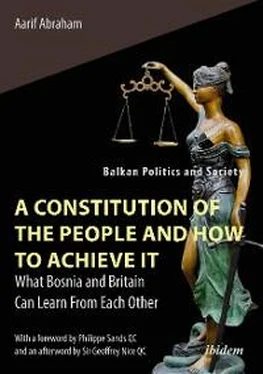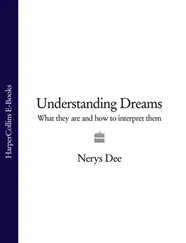The revolving constitution is far from being a revolutionary construct. It does not, like revolutions in general, impose a winner takes all solution by immediately empowering or disempowering one group over another in the political game. Repeated interaction and engagement by the people and elites in the constitutional reform arena would tend to speed-up constitutional evolution, recreating a process that allows flexibility to be established in polities like Britain. If it is right that the people are more conciliatory and accepting than political elites (as this book demonstrates they are) then this evolution will stand in bold defiance of exclusive ethno-nationalism. The possibility of regularly (though not too frequently) amending the constitution, with civic involvement, would set in motion a process rather than determine an outcome. A process whereby political elites are incentivised to pursue moderate and accommodating reform could, incrementally, alter the shape of everyday politics in Bosnia. A standard may even be set for other plural, multi-ethnic polities to follow—both to help regulate existing conflict and avert conflict in the future.
In Britain, it is evident that piecemeal and partisan constitutional changes and the use of modes of decision making that are outside the accepted rules and norms has had a corrosive effect on the institutions of parliamentary democracy. Parliamentary democracy is predicated on representative institutions rather than institutions of direct democracy. It is evident that there is a need for inclusive, participatory and deliberative processes to reform aspects of the British constitution so that a fairer settlement can be achieved to address disparities in: wealth and regional equality; the equality of the four nations; the application of human rights and the international norms thereof; and the representation of the people in Parliament. There is a strong case for a constitutional covenant to begin a process: to inform the electorate and elites, to understand the significance of reform and where it might be really needed through consultation; and, ultimately to open an informed national debate and deliberation—among political elites and the people—in order to form a cross-party consensus as to which aspects of Britain’s unwritten constitution are fundamental. This might include the production of an impartial code or guide to the current arrangements to facilitate understanding and debate (HoC 2014). The process towards a covenant is not utopian in nature but rather a practical mechanism: the people can be nudged into this process given the preferences they have expressed in favour of more involvement, participation and a need for a change from the status quo.
The Bosnian experience shows that there are some principles which must be at the forefront of any constitutional reform endeavour in Britain. The process of any reform proposal is all critical. Measuring political culture is as important as carrying out polls on the day-to-day issues that concern the electorate. This enables a better understanding of where the electorate stands on the fundamentals of democracy, participation and the idea of living together. Public participation in the process must be provided for and ought to be genuine and meaningful to help nurture, consolidate, and develop good political culture. And, finally, pragmatic buy-in of political elites is necessary to avoid spoilers and to avoid scenarios where it is perceived that at the end of the process the winner will take all. With some of these principles it may well be possible to consider whether the British people, across all four nations and in all their diversity, may come to new political understanding, perhaps towards a kind of Magna Carta of the People, around which political elites, stakeholders and the people may coalesce. 23There will be no shortage of questions requiring answers, for example:
How do you accommodate different national interests in a union of nations without descending into a nationalist “race to the bottom”?
How should constitutions deal with veto rights on decisions by national or minority communities?
What are the risks of entrenching some rights above others, in particular, the rights of whole groups or nations?
What are the pitfalls of using referenda in a blunt manner (as was done in the referendum to leave the EU) and what might be more ‘sensible’ ways of ascertaining people’s preferences?
Why is constitutional change without considering the preferences of the people doomed to fail?
Should political culture (both civic and political values) be given equal, if not more, attention as proposals for reform of constitutional rules?
This book aims to provide those answers and an opportunity to re-evaluate Britain’s current uncodified constitution. In doing so, it provides some insight as to a possible transparent, inclusive, participatory pathway around current impediments. It posits a recurring but controversial question: is Britain’s historical unwritten arrangement really worth defending? Any such defence, if it is to occur, would be made through a re-development of core political and civic virtues through greater political interaction between political elites and the people. Reliance simply on written rules, duties and responsibilities is not enough. Some form of social entrenchment of human rights (if not legal and political) is clearly necessary to allow the unrestricted cultivation of good political culture. Game theory and behavioural economics suggest that, where the conditions are right, the British model, with certain adaptations, could be favourable to better constitution-making. The British model may make less confrontational a process by avoiding any ‘constitutional moment’. It allows, not unlike a ‘revolving constitution’, inter-temporal bargains to lessen the ‘winner-takes-all’ effects of a new or amended constitution. It also encourages an active constitutional culture to develop across generations so that new generations may feel that they have something at stake and a genuine solidarity and fraternity with others who decide the new rules.
Britain though may need a way to reset the terms of its political arrangement. A one-off constitutional covenant leading to a constitutional convention to deliberate on key constitutional problems may provide a truly participatory and deliberative constitutional statute to renew, reinvigorate and revitalise political relationships. Such a constitutional statute could ensure that Parliament, the Government as well as the devolved administrations benefit from greater popular legitimacy rather than suffer collective malaise, disdain and apathy.
The book is organised as follows. Chapter 1 provides an overview of what a constitution is and the debate that surrounds its nature. An outline is provided of the British unwritten or uncodified constitution: its operation, its historical origins, and the recent trends challenging its unwritten status. The Chapter also provides an outline of the Bosnian constitution: its creation, the hopes of its drafters, its imposition, and the practical reality of its operation. It explains why comparing these two particular States is important and what we might hope to gain by questioning their design and amendment processes. It emphasises that no particular constitution is paradigmatic. An unwritten one is not necessarily superior to a written one. The process of creation or change, however, necessarily entails a consideration of political culture and history.
Chapter 2 introduces theoretical ideas about political culture, what it is and how it can be measured. It explains falls in political participation in Bosnia and Britain and the variables that can help explain why people are (or can become) apathetic in a given constitutional structure. In particular, the Chapter looks at how people form views that are not conducive to democratic engagement, as well as views that are hostile to a democratic form of government. The sub-chapters define concepts such as ‘political culture’, ‘political apathy’, ‘political participation’, and proposes a working model for analysis. The Chapter presents the findings of quantitative research (see Appendix A) in respect of political apathy in Britain and Bosnia, with Croatia as a reference point.
Читать дальше












